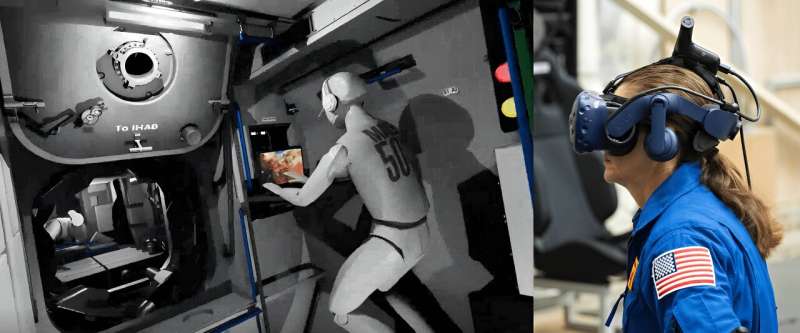NASA's Electrodynamic Dust Shield Enhances Lunar and Martian Missions
Thursday, 11 April 2024 10:17 Defeating dust is a critical concern for astronauts and spacecraft heading to the Moon or Mars, prompting researchers at NASA's Kennedy Space Center in Florida to refine Electrodynamic Dust Shield (EDS) technology.
The technology uses transparent electrodes and electric fields to electrically lift and remove dust from crucial surfaces used in space, such as thermal radiators, solar panels,
Defeating dust is a critical concern for astronauts and spacecraft heading to the Moon or Mars, prompting researchers at NASA's Kennedy Space Center in Florida to refine Electrodynamic Dust Shield (EDS) technology.
The technology uses transparent electrodes and electric fields to electrically lift and remove dust from crucial surfaces used in space, such as thermal radiators, solar panels, Spectrum Advanced Manufacturing Technologies Announces Major Expansion in Colorado Springs
Thursday, 11 April 2024 10:17 Spectrum Advanced Manufacturing Technologies (Spectrum AMT) is set to significantly expand its operations in Colorado Springs, reinforcing its role in precision electronics and assemblies manufacturing. This move is supported by the Colorado Economic Development Commission and both state and local governments, emphasizing a mutual commitment to economic development and innovative enterprises.
Spectrum Advanced Manufacturing Technologies (Spectrum AMT) is set to significantly expand its operations in Colorado Springs, reinforcing its role in precision electronics and assemblies manufacturing. This move is supported by the Colorado Economic Development Commission and both state and local governments, emphasizing a mutual commitment to economic development and innovative enterprises. Ethical questions abound as wartime AI ramps up
Thursday, 11 April 2024 10:17 Artificial intelligence's move into modern warfare is raising concerns about the risks of escalation and the role of humans in decision making.
AI has shown itself to be faster but not necessarily safer or more ethical. UN Secretary General Antonio Guterres said Friday that he was "profoundly disturbed" by Israeli media reports that Israel has used AI to identify targets in Gaza, causing man
Artificial intelligence's move into modern warfare is raising concerns about the risks of escalation and the role of humans in decision making.
AI has shown itself to be faster but not necessarily safer or more ethical. UN Secretary General Antonio Guterres said Friday that he was "profoundly disturbed" by Israeli media reports that Israel has used AI to identify targets in Gaza, causing man Chinese Satellite Successfully Tests 3D-Printed Storage Tank in Orbit
Thursday, 11 April 2024 10:17 The China Aerospace Science and Technology Corporation (CASC) has achieved a significant milestone with the successful in-orbit operation of a pioneering 3D-printed storage tank on the Tiandu-2 satellite. This event marks the first time a 3D-printed component of this kind has been used aboard a Chinese satellite, underscoring a major advancement in aerospace technology.
The innovative cold
The China Aerospace Science and Technology Corporation (CASC) has achieved a significant milestone with the successful in-orbit operation of a pioneering 3D-printed storage tank on the Tiandu-2 satellite. This event marks the first time a 3D-printed component of this kind has been used aboard a Chinese satellite, underscoring a major advancement in aerospace technology.
The innovative cold Exolaunch Collaborates with HawkEye 360 for Satellite Deployment Services
Thursday, 11 April 2024 10:17 Exolaunch has announced a multi-mission agreement to provide launch and deployment services for HawkEye 360, marking their first partnership aimed at advancing space-based technology and geospatial intelligence capabilities. The initial launch, part of the agreement, occurred at Kennedy Space Center's Launch Complex 39A on April 7, utilizing SpaceX's Falcon 9 and Exolaunch's CarboNIX separation
Exolaunch has announced a multi-mission agreement to provide launch and deployment services for HawkEye 360, marking their first partnership aimed at advancing space-based technology and geospatial intelligence capabilities. The initial launch, part of the agreement, occurred at Kennedy Space Center's Launch Complex 39A on April 7, utilizing SpaceX's Falcon 9 and Exolaunch's CarboNIX separation Space Devices Ensure Health of Taikonauts Aboard Tiangong Space Station
Thursday, 11 April 2024 10:17 The China Manned Space Agency recently showcased new devices aboard the Tiangong Space Station, essential for maintaining the health and safety of taikonauts in zero gravity. These tools have become critical as China aims to extend the duration of manned missions.
The agency highlighted the routine of taikonauts engaging in extensive physical training to combat the effects of prolonged mic
The China Manned Space Agency recently showcased new devices aboard the Tiangong Space Station, essential for maintaining the health and safety of taikonauts in zero gravity. These tools have become critical as China aims to extend the duration of manned missions.
The agency highlighted the routine of taikonauts engaging in extensive physical training to combat the effects of prolonged mic The digital revolution is finally coming to America’s space launch ranges
Thursday, 11 April 2024 09:00

Simulating tumbling reaction wheel reentry
Thursday, 11 April 2024 07:00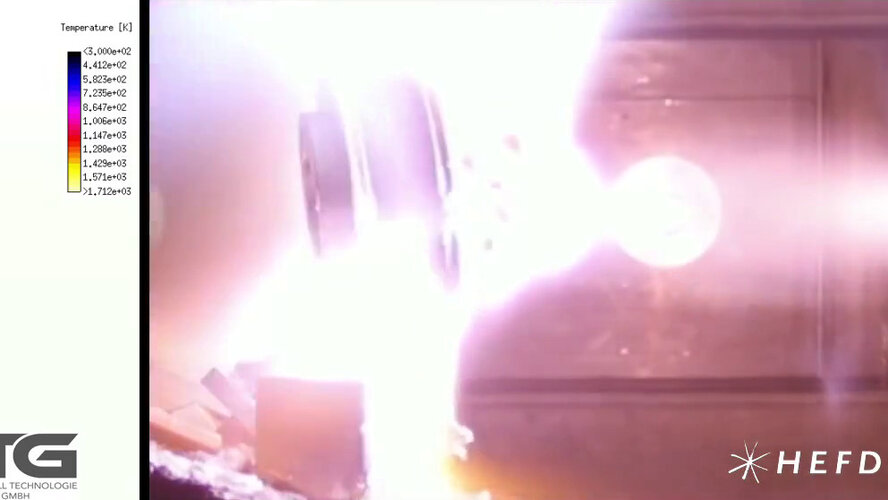 Video:
00:02:04
Video:
00:02:04
A reaction wheel – one of the heaviest parts of a space mission, its changing rotation used to shift a satellite’s orientation – seen in a plasma wind tunnel belonging to the High Enthalpy Flow Diagnostics Group (HEFDiG) at the University of Stuttgart Institute of Space Systems (IRS). Arc-heated gas in the test chamber reaches speeds of several kilometres per second, reproducing reentry conditions, while the reaction wheel itself is being rotated, reproducing the tumbling that takes place as a satellite plunges through the atmosphere.
The reaction wheel itself comes from Collins Aerospace in Germany, which has supported Design for Demise (D4D) activities
Lunar I-Hab mock-up all set
Thursday, 11 April 2024 07:00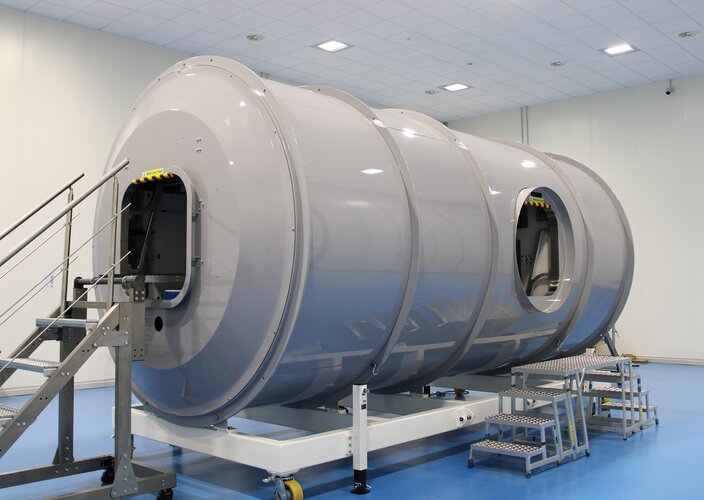
A mock-up of ESA’s habitation module on the upcoming lunar Gateway space station is now ready for testing at Thales Alenia Space in Turin, marking a step forward in bringing humans back to the Moon.
Space Team Europe for Ariane 6: Michel Bonnet
Thursday, 11 April 2024 07:00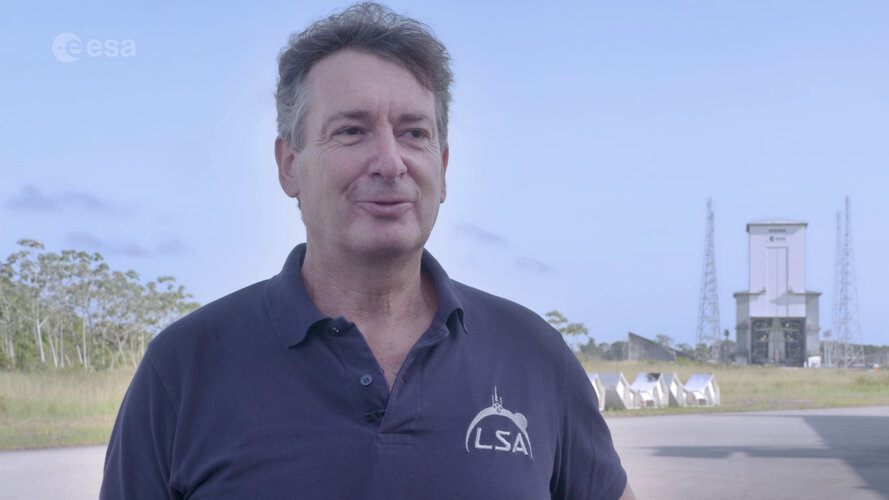 Video:
00:04:45
Video:
00:04:45
They say it takes a village to raise a child. To launch a rocket, we have the combined expertise and passion of Space Team Europe. Michel Bonnet is one of many making the first Ariane 6 launch possible, and has been interviewed as part of a series highlighting some of the people that make up this dream team.
“Who has not dreamed of working in the space sector?” he says, recalling how he built small rockets as a teenager using sodium chlorate, sulphur and sugar. In 1995, after years of work with helicopters and nuclear submarines, Michel started
Kepler partners up for ESA’s optical data relay constellation
Wednesday, 10 April 2024 20:26

Through astronaut eyes, virtual reality propels gateway forward
Wednesday, 10 April 2024 19:37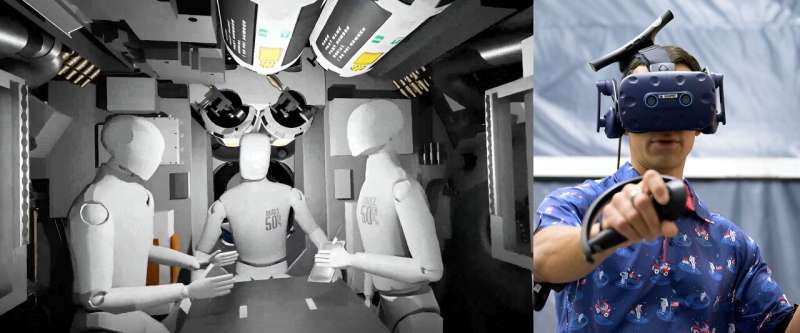
NASA astronauts are using virtual reality to explore Gateway. When they slip on their headsets, they're not just seeing the station—they're in it, meticulously surveying every detail and offering crucial insights on design and functionality.
Astronauts living aboard the Gateway lunar space station will be the first humans to make their home in deep space. To fine-tune the design of the next-generation science lab, solar-powered spaceship, and home-away-from home for international teams of astronauts, NASA calls on the likes of Raja Chari and Nicole Mann, experienced astronauts who know a thing or two about living and working on a space station.
Commanders of the SpaceX Crew-3 and Crew-5 missions to the International Space Station, respectively, Chari and Mann recently brought their long-duration mission experience to bear when they strapped into virtual reality (VR) headsets to tour Gateway, humanity's first space station to orbit the moon.
